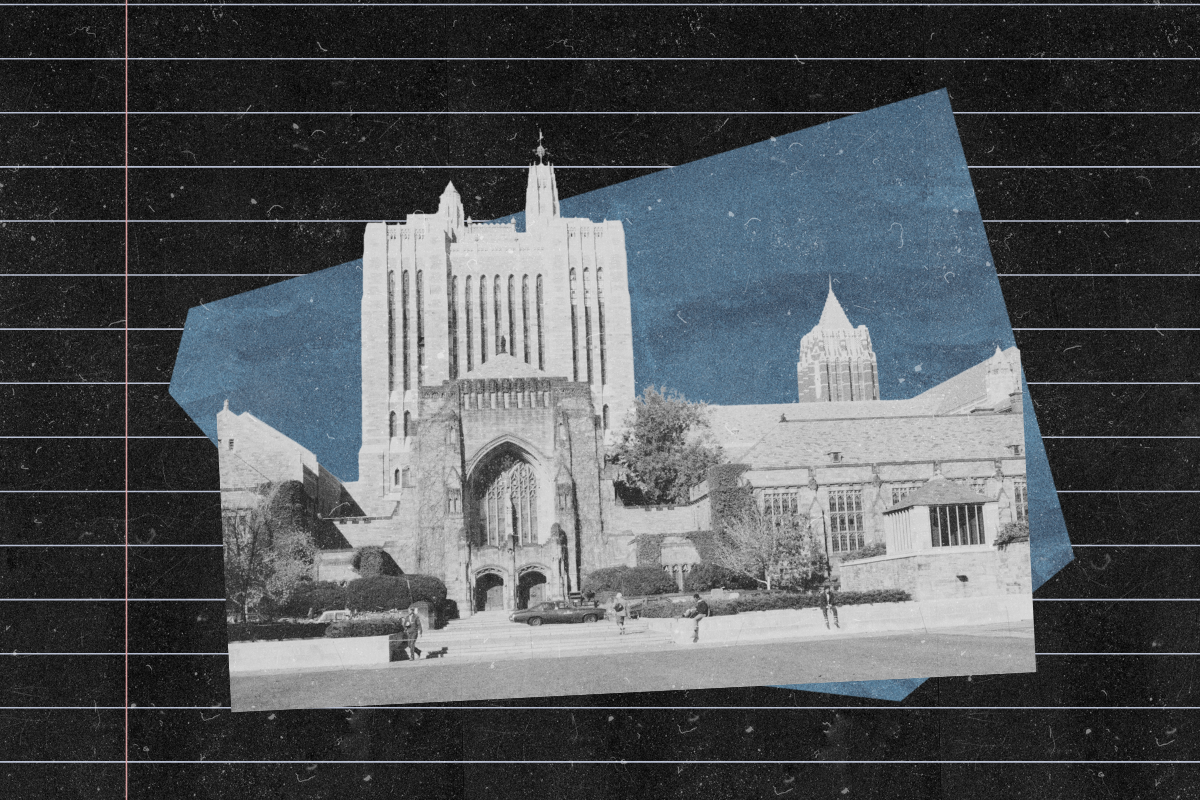This essay is part of Hey Alma’s series on what it’s like to be a Jewish college student in response to October 7, the 2024 Israel-Hamas war and campus protests. Click here to read the full range of voices.
My name is Irene Raich, and I’m a current first-year at Yale. When I arrived at college, I did not assume my first year would be dominated by Israel-Palestine. I feel caught in the middle of two different worlds: my Jewish community I hold so dear and the campus activism with which I deeply empathize. I often feel these two worlds are at odds with each other.
I came to college wanting to be involved in Jewish community. Immediately, Yale’s Slifka Center for Jewish Life provided me with a welcoming, warm, beautiful space: a building I could enter and find friends across the political and religious spectrum, a community to hold me up at my worst and cheer me on at my best. Like many of Yale’s Jews, I value the beautiful pluralism at Slifka. However, that pluralism has suffered in the wake of the protests that have swept college campuses.
Yale was one of the first universities to arrest students. On April 22, 2024, at just past 6 a.m., Yale police arrested 47 people, most of whom were students. I spent the morning of April 22 on the phone with my Slifka friends, many of whom are members of Yale Jews for Ceasefire. I was petrified by the thought that my friends, protesting in an expression of their Jewish values, had been arrested. Just two days earlier, I had been in both the Gaza Solidarity Encampment’s Jews for Ceasefire tent and the pro-Israel table that sat across the quad, affirming my dedication to the people in both. Yet supporting these two groups has proven to be a fraught position. I have overheard arguments between students, and between students and staff, about what should be considered appropriate for the Jewish community. As someone who simultaneously believes in the aims of the protests — ceasefire, disclosure and divestment — and is dedicated to upholding Jewish community, I feel pressured, sometimes, to choose.
I am on the board of Yale’s chapter of J Street U, which has made the conscious choice to operate within Yale’s Jewish community. Much of what we do within Slifka has been to affirm political pluralism. That work has been extremely fulfilling, as I have fought for both Zionist and anti-Zionist students to feel safe and welcome within Yale’s Jewish community. My Judaism is defined in conversation with, and not by, Zionism. I believe that conversation between Judaism and Zionism — rather than clear division or outright conflation — is essential for the health of the Jewish communities I hold dear. I have done everything from staying up late working on Divrei Torah ensuring that the voice of leftist students can be heard at Shabbat dinner to engaging in ongoing conversations with staff and students about the importance of making sure every single student, regardless of political beliefs, feels held and understood by Yale’s Jewish community. Campus politics can be difficult and stressful, and our Jewish spaces need protection, care and people to fight for them.
— Irene Raich from Fayetteville, Arkansas; Yale University, Class of 2027



